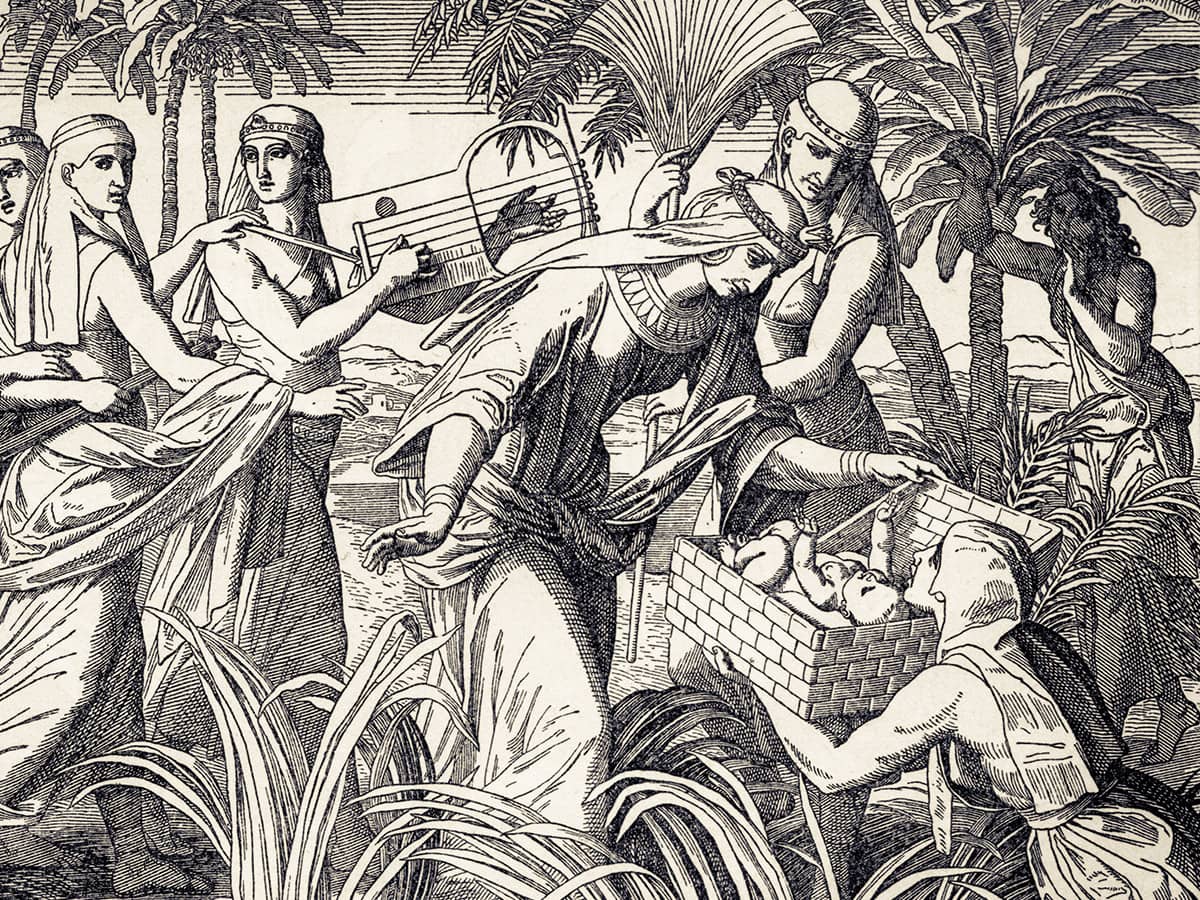
The Law of Moses or also known as the Mosaic Law refers to the first five books of the Hebrew Bible. The books were believed to be written by Moses; however, academicians and historians have found evidence that supports the theory that there were many authors involved.
The Hebrew word for the first five books of the Hebrew Bible is the Torah – which means “law” in Greek.
The content of the Law of Moses is spread among the books of Exodus, Leviticus, and Numbers, and Deuteronomy. The content includes:
- The Ten Commandments
- Moral laws – on murder, theft, honesty, adultery, etc.
- Social laws – on property, inheritance, marriage, and divorce.
- Food laws – on what is clean and unclean, on cooking and storing food.
- Purity laws – on menstruation, seminal emissions, skin disease and mildew, etc.
- Feasts – the Day of Atonement, Passover, Feast of Tabernacles, Feast of Unleavened Bread, Feast of Weeks etc.
- Sacrifices and offerings – the sin offering, burnt offering, whole offering, heave offering, Passover sacrifice, meal offering, wave offering, peace offering, drink offering, thank offering, dough offering, incense offering, red heifer, scapegoat, first fruits, etc.
- Instructions for the priesthood and the high priest, including tithes.
- Instructions regarding the Tabernacle, and which were later applied to the Temple in Jerusalem, including those concerning the Holy of Holies containing the Ark of the Covenant (in which were the tablets of the law, Aaron's rod, the manna). Instructions and for the construction of various altars.
- Forward looking instructions for time when Israel would demand a king.
The Oral Torah is the content of the instructions and interpretations which have been orally passed down and excerpted, and these are known as the 613 commandments. The commandments are first recorded in the 3rd century CE when Rabbi Simlai mentioned them in a sermon.
What can we learn from the Law of Moses?
2 Timothy 3:16 answers that. “All Scripture is God-breathed and is useful. The Mosaic Law reveals God’s holiness, defines sin and exposes its heinous nature, confirms our need to be separate from sin, shows how God’s plan unfolds gradually (and progressively),expounds on God’s two basic commands, predicts that God will not forsake His children, establishes the principle of sowing and reaping, demonstrates the value of an intercessor between God and man, reveals the efficacy of a substitutionary sacrifice, and provides examples of Christ and His redemption.
The law reveals God’s standard for His people living in a fallen world and the righteousness people should carry out. Given that, the law also defines sin and sets a divine standard. By setting a law the people can identify the need for a Savior and rules. The ten commandments and the law of Moses brought clarity to the separation of sin and goodness by explaining that nothing unfolds instantaneously, and followers of Jesus Christ must exude patience.
Yet, everything in the law can be summed up to two commands. The first can be found in Deuteronomy 6:5. “Love the Lord your God with all your heart and with all your soul and with all your strength.” The second can be found in Leviticus 19:18. “Love your neighbor as yourself.” Love and compassion are the solution to so much of the hurting in the world.
The law of the commandments and much of the Law of Moses was fulfilled at the death and resurrection of Jesus Christ. The law was a gospel to bring adherents to Christ. Galatians 3:24 teaches us, “So that the law is become our tutor to bring us unto Christ, that we might be justified by faith. But not that faith is come, we are no longer under a tutor.” Jesus told his followers to obey the law. In Romans 13:1-2 Jesus says, “Obey the government, for God is the One who has put it there. So those who refuse to obey the law of the land are refusing to obey God, and punishment will follow.” The laws were not only meant to be external but, also, internal. By internally accepting these laws, moral perfectionism was created and upheld. Essentially, this is how an individual could/would separate sin from goodness.
Since Moses gave these laws and commandments to the Israelites he is often referred to as the law giver. The Torah, which included the Ten Commandments, was given to Israel (by Moses from Jesus) to regulate their society for a period of time. The Israelites understood that their acceptance of these commandments and laws was to be accepted until the coming of Jesus Christ.
Does the Law of Moses Apply Today?
Today, Christians can (and should) live out the Law of Moses within their daily lives. The inspirational life lessons can be summarized to:
- Be in God’s perfect will. Stop allowing busyness to dictate the paths you take. Instead of allowing schedules to control your life, hand it all to God, and allow Him to lead you.
- Create a personal relationship with God. Talk to him directly. Pray. Make time for Him every day, so you can create a strong bond and long-lasting relationship.
- God uses the weak. God uses many people who believe and feel like they’re unworthy. These people can channel their weaknesses and carry out God’s message because they understand grief and hardship on a different level.
- Never lose your faith and stay focused. Nothing good comes without a lot of hard work and progress. If you want something, you must stay focused and be willing to sit patiently.
The Law of Moses teaches the world that we must never give up and be willing to live out our faith. Whether Moses wrote it all or it was a collaborative effort, followers know and trust that it is the Word of God.

